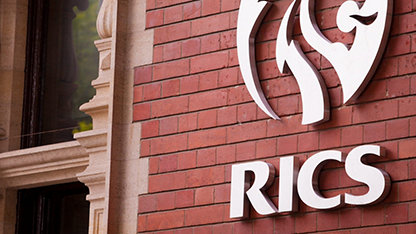Hi Sam, can you tell us about the changes you’ve had to make to your role as a Lecturer at UWE Bristol?
The decision was made to suspend classes and move all teaching and learning online due to the coronavirus (wellbeing of students and staff). For me this meant setting up a virtual lecture room, tutorial room and office space where students could meet with me. I've pre-recorded a number of my lectures to avoid technical glitches and to enable students to watch these at later times if their internet connection should fail.
How has this affected assignments for your students?
Assessments are difficult to change due to the rigorous process at universities, but in the face of such an unusual situation, my university has reviewed learning objectives for modules and programmes to ensure students are able to meet these through their assignments and continue to meet the requirements of the professional bodies that accredit UWE's degrees. Changes to assignments have included moving group presentations to online delivery, online assignment submissions, and so on.
How are you interacting with students around answering their questions, supporting them and providing feedback to their work?
This is a really interesting one. In my tutorials and lectures, students are muted and their webcam is off most of the time. This makes it really hard to gauge the audience and whether they've understood the concepts I'm presenting. However, there is a chatbox for messages and I ask the students use this function to let me know if they understand and if there are any questions. I also use a function in the software to break them into smaller groups for activities during the tutorial - sometimes these work better than others so I tend to drop into each group and facilitate discussion if necessary.
In my virtual office, students use their microphone and/or webcam to discuss knowledge gaps with me or ask questions about the assignment, just as they would do in person. Today I met with a student who has returned home to Wales and another who has returned to Mauritius and it was really useful to be able to still meet with them.
For feedback on assignments, I normally use a combination of video feedback and written feedback, so this hasn't changed much. I'm also still able to provide informal feedback in class about general patterns I'm seeing in assignments, although these classes are now online.
How are the students finding this experience?
I asked my students today how they're finding the online learning experience. I'm impressed with their calmness and adaptability - it shows great strength in such an uncertain situation. They've said that their experience of the online classes varies between modules but they are finding it really positive overall. Some are having some internet issues, which is why I record my lectures in advance, where possible. My more shy students have said that they prefer this online method of delivery because they've been able to more easily 'speak up' using the chat function, and they're finding the breakout sessions useful to continue interacting with their peers using class activities.

Sam Organ, senior lecturer in Building Surveying at UWE Bristol
How have you been supported by UWE and the National Trust?
There's been a lot of guidance provided by both UWE and the National Trust, so I've been really fortunate. Everything is a moving target at the moment, but it's important to remain calm and ensure that, where possible you can continue delivering whilst supporting those around you. With both employers, I am working from home, but speaking with colleagues and management daily.
How you are finding juggling the two roles in the current environment, is it harder or easier?
No different - for me it's about having good parameters to ensure you fulfil your commitment to both organisations. I am being flexible on this where there are urgent matters, but this can exacerbate the danger of doing increasing amounts of overtime. This is a real risk of working from home, and I think this can have even more of an impact on mental health when we're not able to leave the house as much. Learning to put down the work and going back to it tomorrow is important.
How has your role with the National Trust been affected?
The National Trust has a special year this year - we celebrate 125 years of its founding, so it's natural we want to share that with everyone through our special places. However, for the wellbeing of staff, volunteers and visitors our properties are currently closed, which feels really strange. We have tenants across different types of property and therefore we need to think about how we can observe mobility restrictions whilst continue to ensure things like boiler breakdowns are fixed. I'm not visiting any non-essential sites at the moment, in line with Government and Trust guidance. There's a lot of discussion going on behind the scenes about how we can do our jobs, and many of us will be furloughed. I'm always really impressed by my manager and his leadership. He is not only immensely calm but also very pragmatic, which is a good approach.
How has your work with RICS Matrics been affected?
Under the tireless Future Talent Team, the RICS Matrics UK Board will be continuing to meet to develop our strategy. However, these meetings will be online, and other events will either be facilitated online or postponed to later in the year. The Board members are always a huge support with everything I do, and now is no different despite our increased time pressures (work) in the context of the coronavirus.
“The (RICS Matrics) Board members are always a huge support with everything I do, and now is no different despite our increased time pressures (work) in the context of the coronavirus. ”
What would you say are the biggest challenges you have faced?
Aside from arranging online groceries or buying toilet roll?! I would say there have been 3 main challenges:
- My inbox for both jobs - there's a lot of dense information to process first thing.
- Being pragmatic and having honest conversations about what needs to be postponed (projects) and what needs to happen quickly, without visiting or meeting in person (if possible).
- Knowing when to put work down and take a break or finish for the day - I have been known to be a bit of a workaholic, so starting my day with a set end time in mind helps.
This has been a tough period for us all, but what are the positives you’ve found during this experience?
I suppose generally I've really enjoyed the change in pace and observing this culture shift in others in my community. People are making the most of the precious time outside the house. It's quieter on the roads and I've noticed a big difference in air quality. Imagine if this level of effort had been invested in the climate change agenda!
I've been staggered and impressed by the way everyone has risen to the current challenge. The surveying profession is no different. The implications of the coronavirus are potentially immense and are likely to be felt for quite a while in the construction and property industry. Yet students and professionals have been calm and pragmatic. We can't control everything, so I'm finding a good approach is to focus on what I can influence and continue reviewing tasks that I can deliver from home.
Do you have advice for people in a similar situation?
We need to remember to have an outlet and put work down at set times - whether it's joining Gareth Malone's new online choir, a run in the park (when we're allowed out!), speaking with friends and relatives (my Grandma turns 94 this June and she's missing her coffee mornings and exercise class so phone calls are very welcome), or playing with your canine companion. Keep things at work under review and be flexible where you can. Support others - you don't know the impact the current situation is having on people, so be ready to listen.
“I've been staggered and impressed by the way everyone has risen to the current challenge. The surveying profession is no different. ”
This also applies to lecturing, but with this, remember to clearly communicate with students. I'm finding students appreciate it if you provide a rough agenda for their lectures/tutorials a day before the session. This helps them navigate the sessions a little better (and there will always be that one student who oversleeps - I'd rather they can jump into the virtual class and understand what stage we're likely to be at). Be honest with students and say you aren't familiar with some new technology or software - welcome feedback. It's a learning process that everyone is undergoing. If my colleague in his 70s who is a confessed technophobe can learn to deliver classes online, anyone can.
Work won't disappear - it might be shifted down into a lower gear for some surveyors over the coming months, but that work will probably need to be done at some point if the budget is still there. So things will get busier again - we just don't know when yet.
- You can follow Samantha on Twitter to keep up to date with how she is adapting to the ongoing changes.












